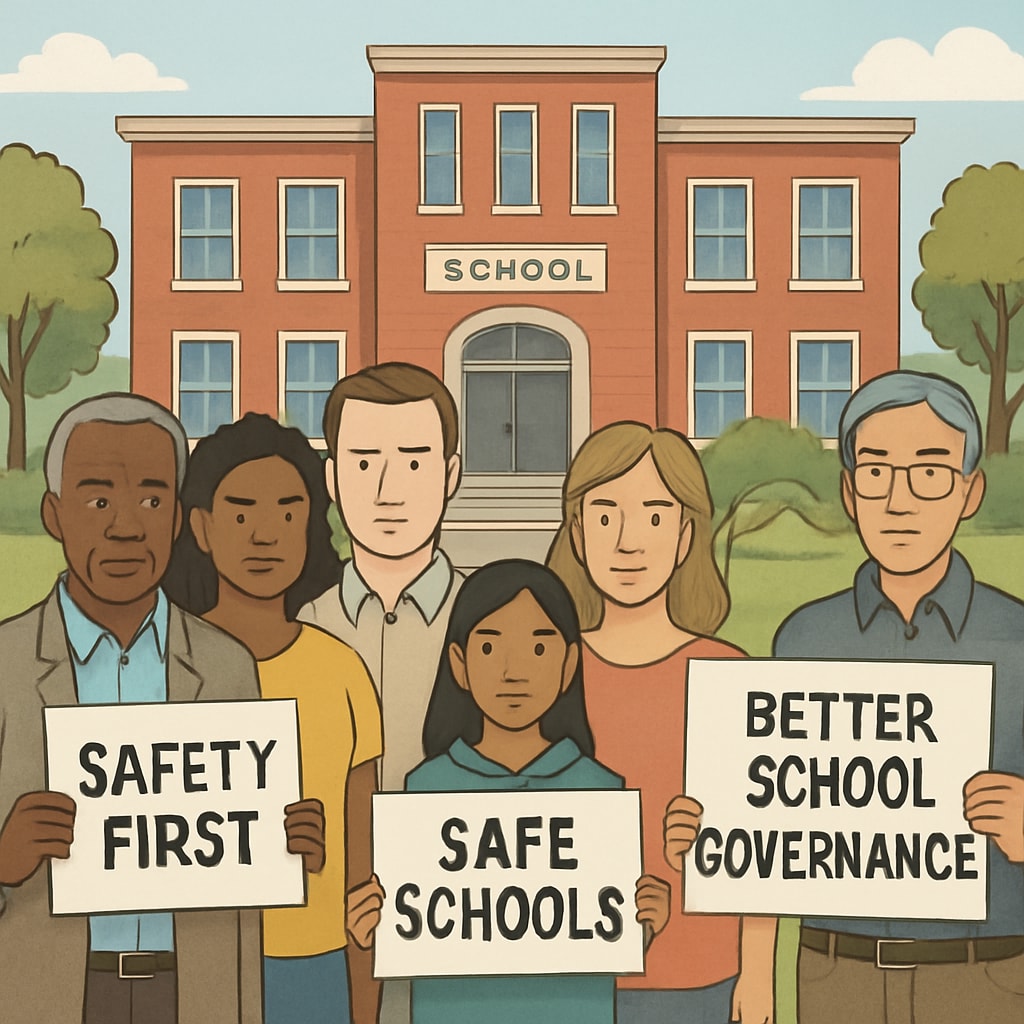Recent protests in a small Maine town have raised significant concerns about school safety governance. Residents are rallying against the appointment of a school board member with a past violent criminal record, shedding light on the critical intersection between educational oversight, background checks, and community action. This incident has sparked a national debate on ethical standards in school governance and the mechanisms needed to safeguard children while respecting due legal processes.

Community Concerns Over School Leadership
School boards play a vital role in shaping educational policies, ensuring student safety, and maintaining an environment conducive to learning. However, the appointment of individuals with violent criminal histories to such positions can challenge public trust and spark community outrage. In this particular Maine town, protests erupted when residents learned that a new school board member had previously been convicted of a violent crime. Parents and community members fear this decision undermines the safety and integrity of the school system.
Community members argue that schools must serve as safe havens for children and that leadership positions should be held to the highest ethical and moral standards. This incident has prompted calls for stricter vetting processes to ensure that those responsible for shaping educational policies are adequately qualified and pose no risk to student welfare.
The Need for Comprehensive Background Checks
While many school districts have existing background check procedures, the rigor and scope of these checks can vary widely. This inconsistency leaves room for individuals with concerning histories to assume influential roles within educational institutions. In the Maine case, critics contend that the current system failed to prevent an unsuitable candidate from being elected to the school board.
Comprehensive background checks are essential to protect students and uphold public trust in educational governance. Such checks should include criminal history reviews, reference verification, and assessments of character and ethical conduct. According to Britannica’s discussion on background checks, these processes are essential for maintaining accountability in positions of public trust.

Balancing Safety and Legal Rights
While community concerns about safety are valid, critics of the protests argue that individuals who have served their legal sentences deserve a chance for rehabilitation and reintegration into society. This raises complex ethical questions about how to balance public safety with the rights of individuals who have paid their debt to society.
Legal experts emphasize the importance of due process in governance, cautioning against reactionary measures that may violate individuals’ rights. For example, the concept of due process serves as a cornerstone in ensuring fairness and equal treatment under the law. Policymakers must navigate these competing priorities to create solutions that both protect students and uphold democratic principles.
Proposed Reforms for School Governance
To address these challenges, experts suggest implementing reforms that strike a balance between safety and accountability. Potential solutions include:
- Standardizing background check procedures across all school districts to ensure consistency and thoroughness.
- Establishing clear ethical guidelines for school board candidates, including disclosures of past criminal convictions.
- Creating community advisory panels to review and approve school board appointments.
- Providing training programs for school board members on ethics, leadership, and child safety.
These reforms could enhance the transparency and integrity of school governance while addressing the concerns of both safety advocates and legal experts.
The Role of Community Action
Community protests, like those in Maine, underscore the importance of civic engagement in educational governance. Parents and residents have a legitimate interest in ensuring the safety and well-being of students. By voicing their concerns, communities can hold school boards accountable and advocate for systemic changes that prioritize student safety.
However, it is equally important for communities to approach such issues constructively, fostering dialogue and collaboration rather than division. Through active participation and partnership with school officials, communities can help build governance systems that reflect shared values and priorities.
As a result of the Maine protests, other towns and states may begin reevaluating their own policies regarding school board member qualifications. This case serves as an important reminder that school governance decisions have far-reaching implications for student safety, public trust, and community cohesion.
Readability guidance: The article uses clear subheadings, concise paragraphs, and lists to improve readability. It balances active and passive voice while maintaining a professional tone throughout. Transition words are used to ensure smooth flow between sections.


